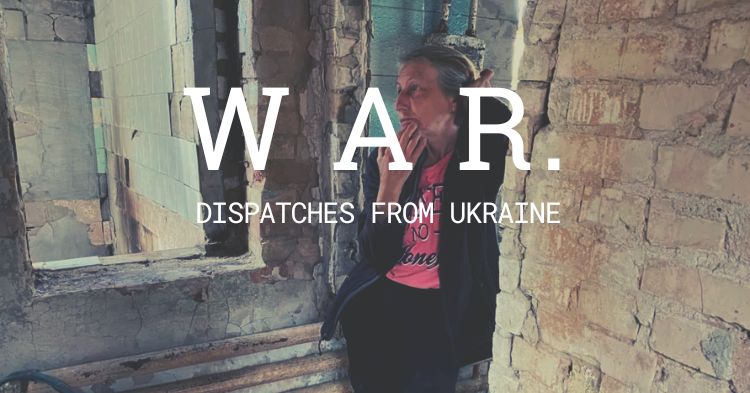Tamara’s story. Why Irpin family, whose house was destroyed, declines offers to move, instead living in their garage
Tamara’s home is among more than 100 private houses in Irpin that have been completely destroyed in the 2022 Russian invasion of Kyiv Oblast. The authorities offered her family transit in special salvage wagons for people whose house had been demolished, but she declined.
Together with her son, Tamara takes care of her elderly mother and her husband who recently had a stroke. Throughout the spring and summer of 2022, the family lived in their garage, which, unlike their house, survived the Russian bombardment. Despite many offers to move, Tamara prefers to stay home.
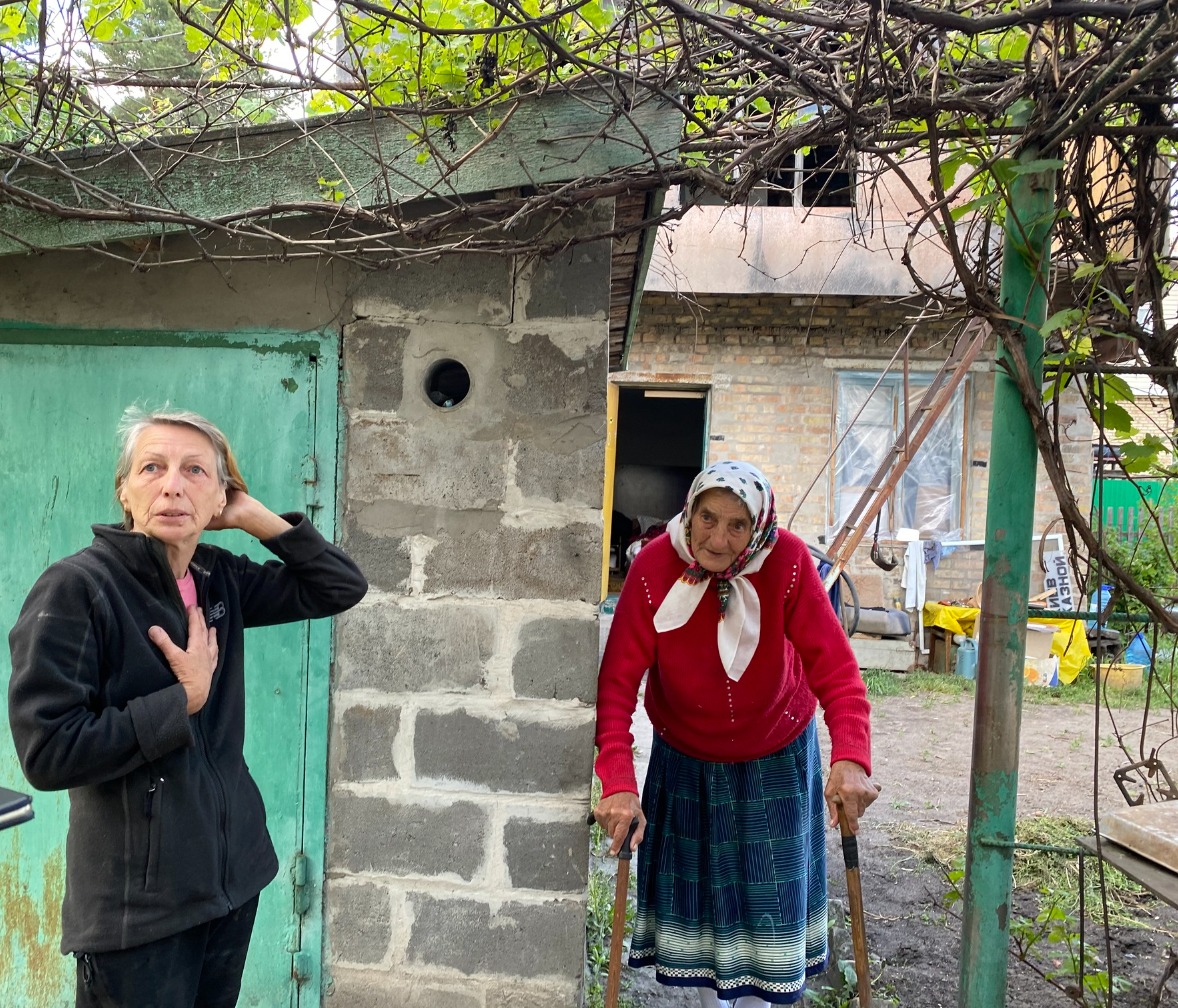
“The local authorities offered – I'm not saying that they didn't offer – to put us up in tents in a temporary shelter as well as wagons that would take us there. But this doesn't work for us. I have two older people and there is only a communal toilet there. Here it is our own garage, you know? After all, this is our own land, to be on your own is completely different. And our pet dog Masha is much calmer.”
Tamara says that she is not accustomed to depending on other people and hopes to restore life at home, at first, staying in the garage which has a second-floor extension. At the time of our conversation, she was considering how to insulate the garage and hoping to bring in a stove.
Tamara is fortunate to have a modest pension and can purchase food in stores, but mainly the family receives their food from volunteers. At first they had to ask for help from neighbors and cook on an old grill. “But we have to get out of this situation, we can't go to our neighbors all the time,” she says. “Now we can cook food on the electric stove we just bought. We saved our canned food, because we managed to take it to the shed during the fire [from enemy shelling].”
Tamara leads us through the remnants of her house and shows us how the family has managed to settle into their garage.
Oleksandr’s story. How the man from Bucha tries to equip his annex building in hope that his family will return home
Oleksandr moved to Bucha in 1989, when he was 36. Born in Uzbekistan, he was fleeing the Fergana massacre leaving behind the flat he owned and the job he loved. "Most of all, I was afraid for my daughters, who then were four-and-a-half and 12," he says.
Oleksandr built his house himself, which now stands in ruins after it was bombarded by the Russian military. Although it was destroyed, he prepares for winter, redesigns an annex building that survived, and hopes his family will be able to return there one day.
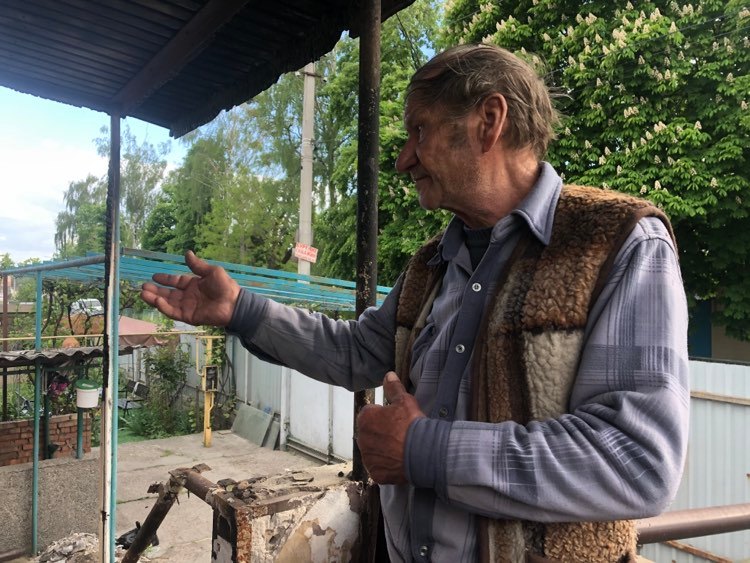
On 28 February, the invading army pummeled one of the rooms of his house with machine guns – the sofa and curtains set on fire. Within a matter of days, on 5 March, a Russian armored personnel carrier destroyed the house completely. It was impossible to extinguish the raging fire.
Oleksandr, his wife, his daughter (impeded by her disabilities), and grandson fled to the basement. The family tried to convince Oleksandr to leave Bucha with them, but he refused. On 9 March, when Russians fully occupied the town, his wife and the children escaped the city by an evacuation corridor. It took them a treacherous week to get to Kyiv, a mere 10 km away.
Having stayed behind, Oleksandr had no chance of leaving his yard because the Russian military forbade any movement. Just beyond the fence, a dead man lay. He was killed by Russian soldiers on 1 March, but it was not possible to bury him for a month.
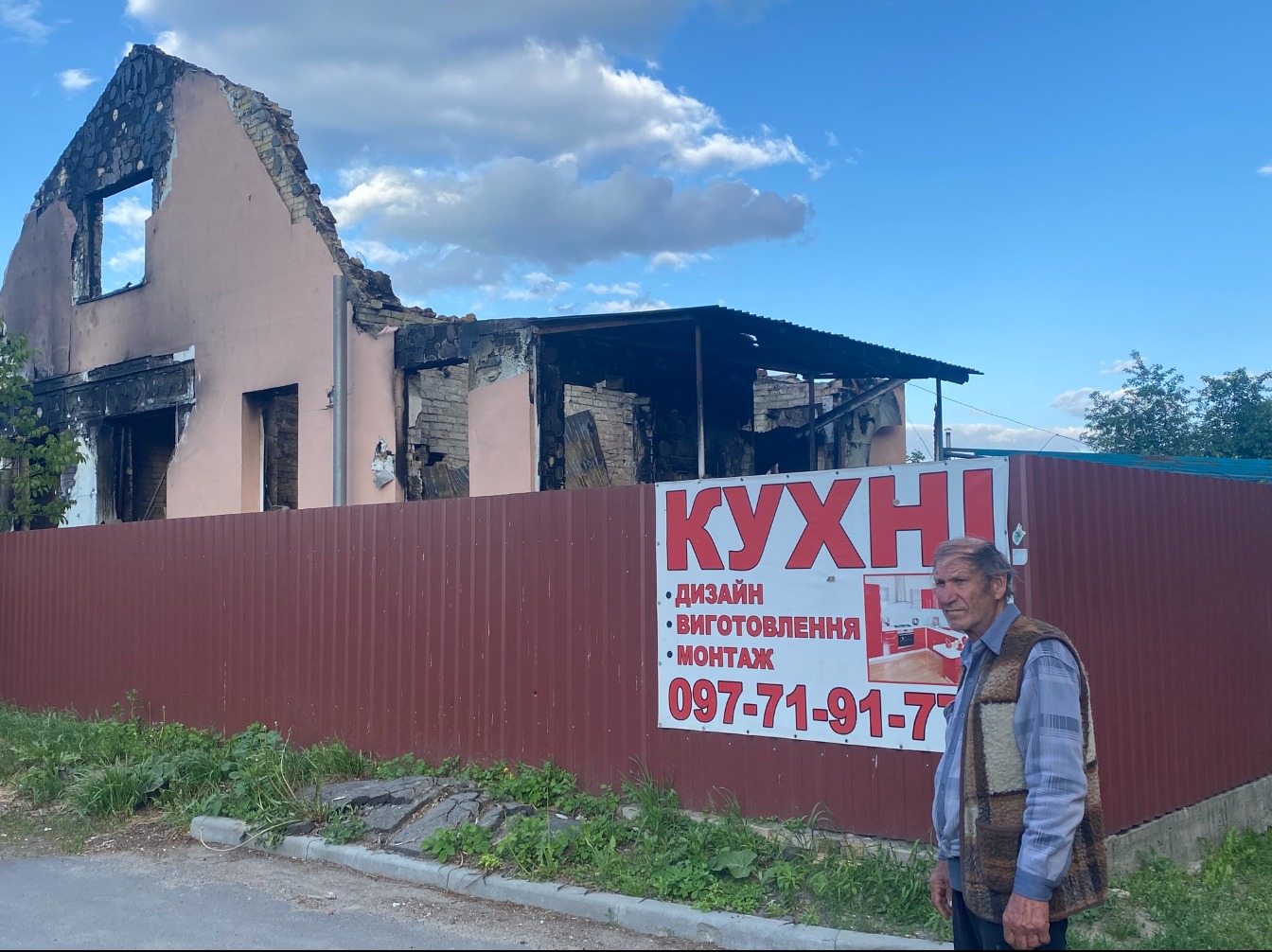
Since there was no way of getting to stores, Oleksandr ate raw vegetables from his garden and canned food. He says he missed bread and oil the most. He cooked on an old stove which was left in the garage. It is the remaining salvage, six months later.
On 31 March, from the basement, Oleksandr could hear the sounds of intense battle. The Ukrainian forces had repelled Russian troops and made them retreat.
Although now he is at least able to live in the garage, he hopes to transform the still-standing annex building – where the home sauna, storage rooms, and barn were located – into a living area. Oleksandr’s family is staying in western Ukraine, in the city of Truskavets, but he hopes that once he is able to fully restore the house, they will join him.
Nataliya. The woman reopened her damaged bakery near Irpin park
Rented almost two years ago for a bakery, a business spot located near Irpin Park could not be opened for a long time. First, work was interrupted because of the quarantine with the COVID-19 pandemic and then, in 2022, by the war.
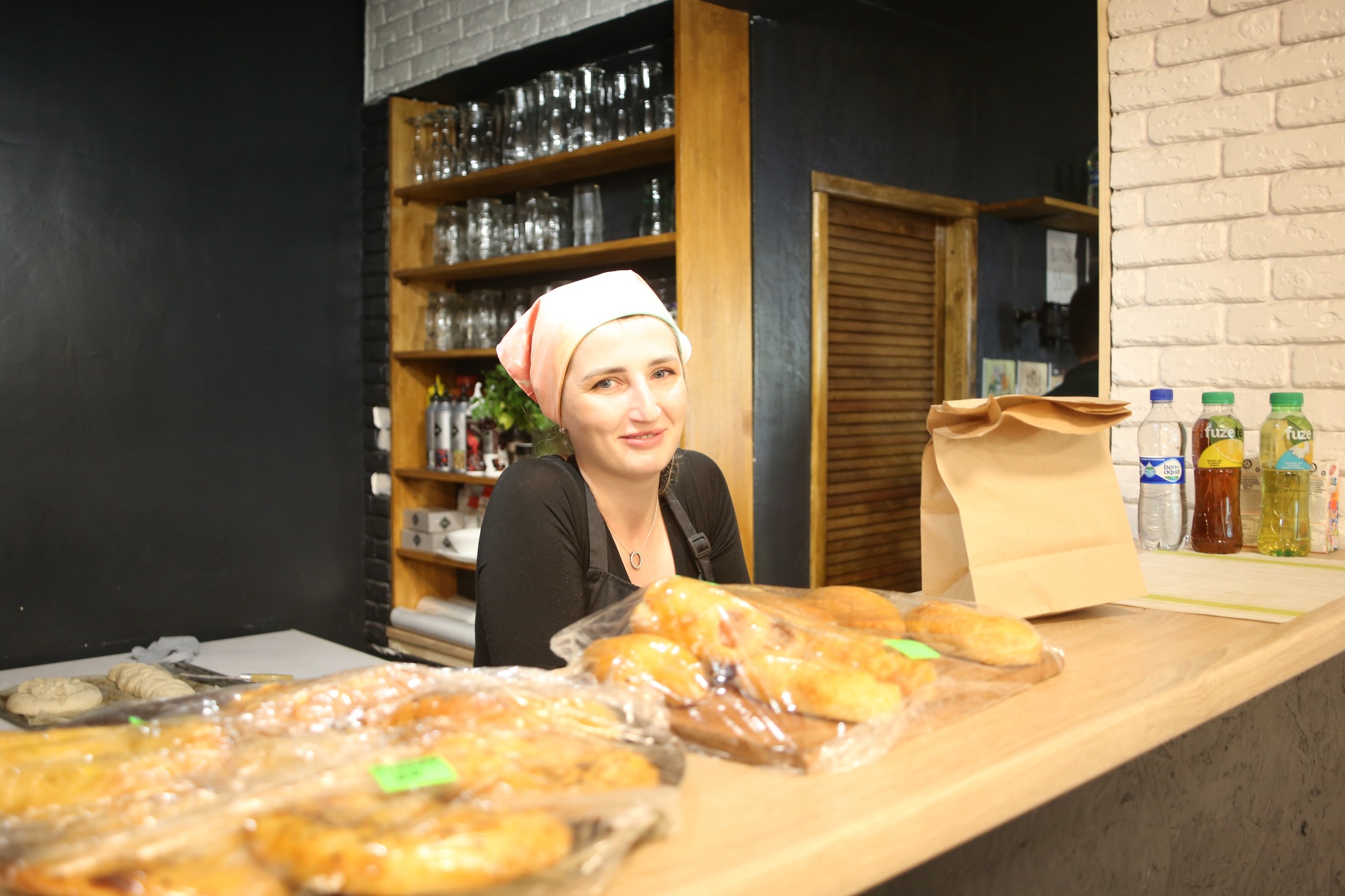
One of the bakery's owners, Nataliya, said it was hard to accept that they could not protect their bakery from afar. They left Kyiv Oblast in the first days of the invasion. “We invested a lot here. Fortunately, an acquaintance covered the windows with boards.”
Nataliya says that she worried most that the bakery – recently repaired – would be looted, but the Russians did not go inside. However, they did steal the large storage bin by the cafe, which Nataliia says cost about UAH 2,000 ($80) – which the owner says was quite fancy. She adds that another cafe in Irpin was also destroyed.
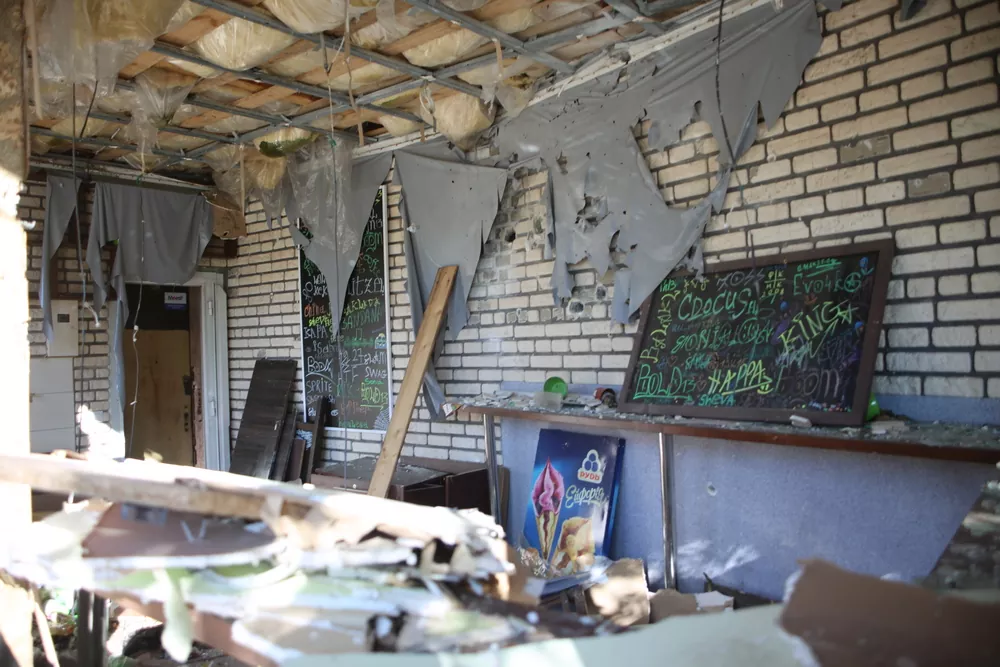
“We will need to renew everything step-by-step. It’s not that bad here. Many people I know who fled the 2014 war in the east of Ukraine were forced to flee again. A lot of terrible things happened,” Nataliya says.
Vitaliy and Nina. Mother and son were returning to Bucha in May, not knowing what to expect. Fortunately, their house survived
We met Vitaliy, 37, and his mother Nina, 61, in the courtyard of their house in the Bucha suburbs. They returned to the city in the middle of May, after not seeing their home for more than two months.
Nina recalls that on one of the first days of the Russian invasion of Bucha, she counted 18 Russian tanks rumbling through the street where her house is located. Witnessing the rapidly worsening situation, the family decided to leave Kyiv Oblast. Nina tells us that while she was forced to flee so far from home, one of her hopes was that soldiers would not steal her dear neck pendants that bear great symbolic and spiritual meaning to her. “Looting was probably all over,” Vitaliy comments.
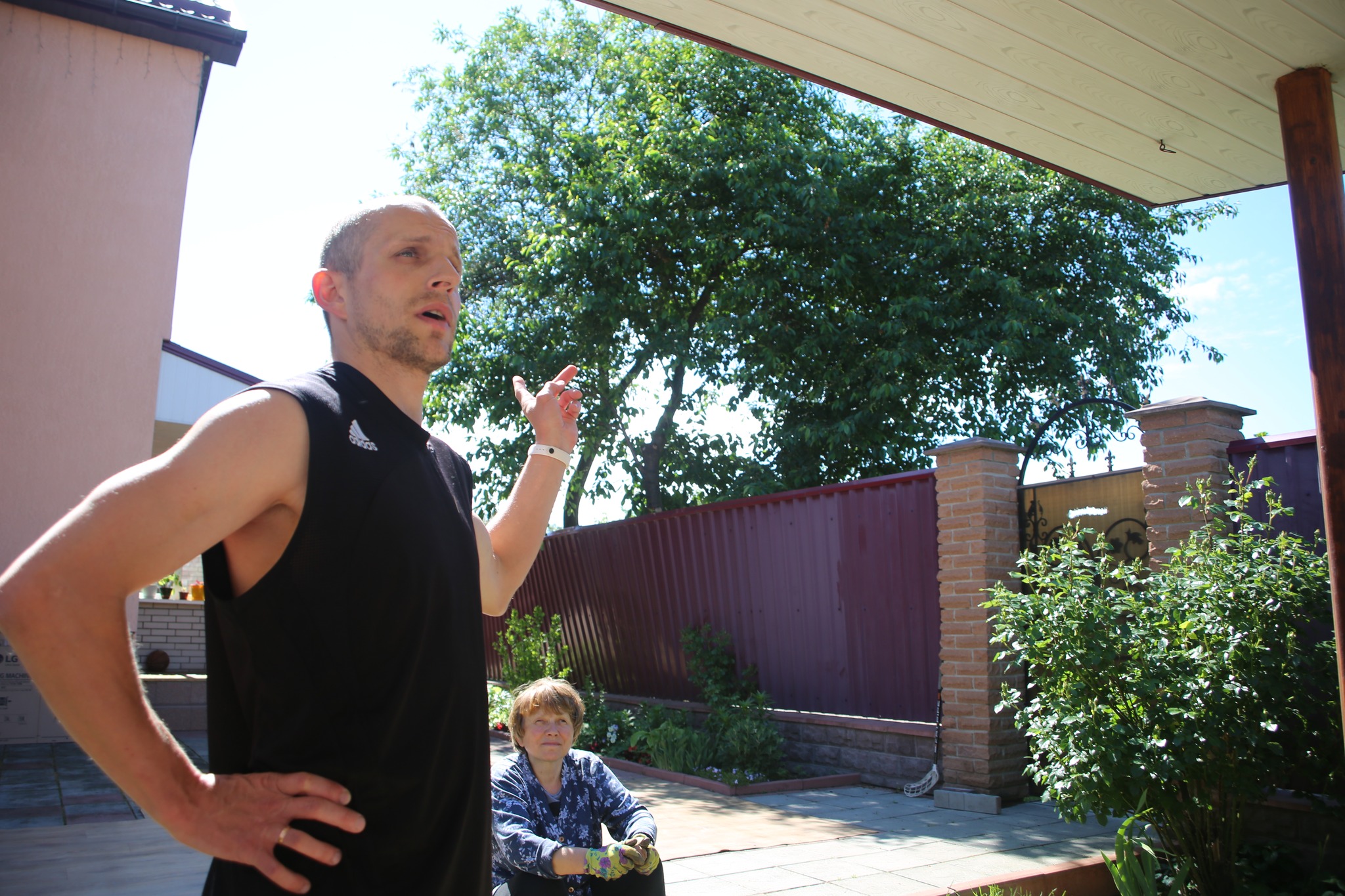
“When we returned, we saw blood everywhere [in the house],” says Nina. “They [Russians] tried to climb into the house through the window. They couldn't do it, and cut their hands. So, they broke down two doors, including the door to the shed, and took a camera and a speaker. So not much.” Vitaliy adds that more and more people were returning to Bucha in May, when they also came back.
Like most houses in Bucha and Irpin, the gate and fence of Nina and Vitaliy’s house are damaged by shells and by Russian looters. “Not all houses on this quiet street survived. Where a Russian missile might have missed your house, it might have hit your neighbor’s, reducing it to ruins. The third house from here was destroyed,” he says.
Vlada. “I was proposed ‘evacuation’ to Belarus”
Vlada lives on Yablunska Vul. in Bucha, which is one of the streets that suffered most from Russian occupation. A 17-year-old girl had to seek refuge in the cellar of her home for three weeks during this time.
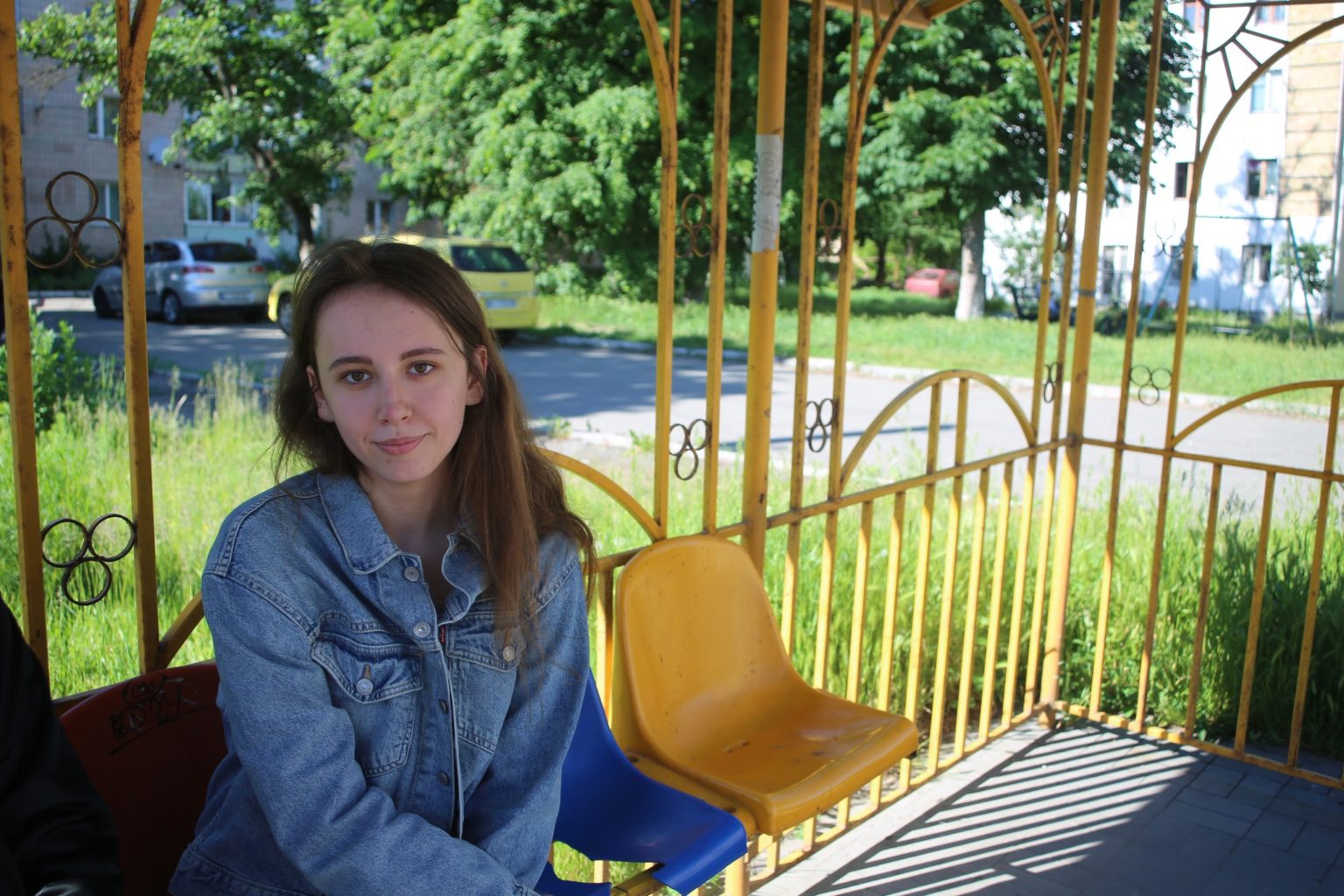
While remaining in the home, Russians stormed the cellar where her family hid. They took away their mobiles, (returning the sim cards) and looted their house. Vlada’s family managed to leave Bucha through the last evacuation corridors before the worst of the atrocities during the last two weeks of March. The Russians finally retreated in the final days of March.
“We left through the last evacuation corridor, and saw a lot of corpses and shot-up cars,” Vlada says. Her house had already been robbed, then even more after she left. Vlada returned to Bucha in early May. She says most of her friends are now home too.
Related:
- Whoever could, fled the Russians. We went back to Irpin to save the rest
- How the fanciest pizzeria of Chernihiv fed 22,000 daily under Russia’s siege
- “The route to life.” How volunteers secretly rescued 75,000 from a city encircled by Russian troops
- Created in three days, Ukraine’s territorial defense ruined Russian plans to capture Kyiv
- “They were shot in the back of the head.” Eyewitness account of Russia’s murders of Bucha residents
- Ukraine’s secret to resisting Russia: resilience
- Lviv Garrison Church chaplains help soldiers find God amid war. And a pair of good boots
- Man saved 1,000 people from hunger during the Russian siege of Chernihiv
- Ukrainian theology professor turned sniper tells how to hunt for Russian invaders
- “Dearest daughter, it’s total Hell. Death is everywhere” – Ukrainian father on the frontline
- The Russian invasion of Ukraine is an assault on the very concept of freedom
- From retiree to millionaire: 7 stories of heroism during the war in…

